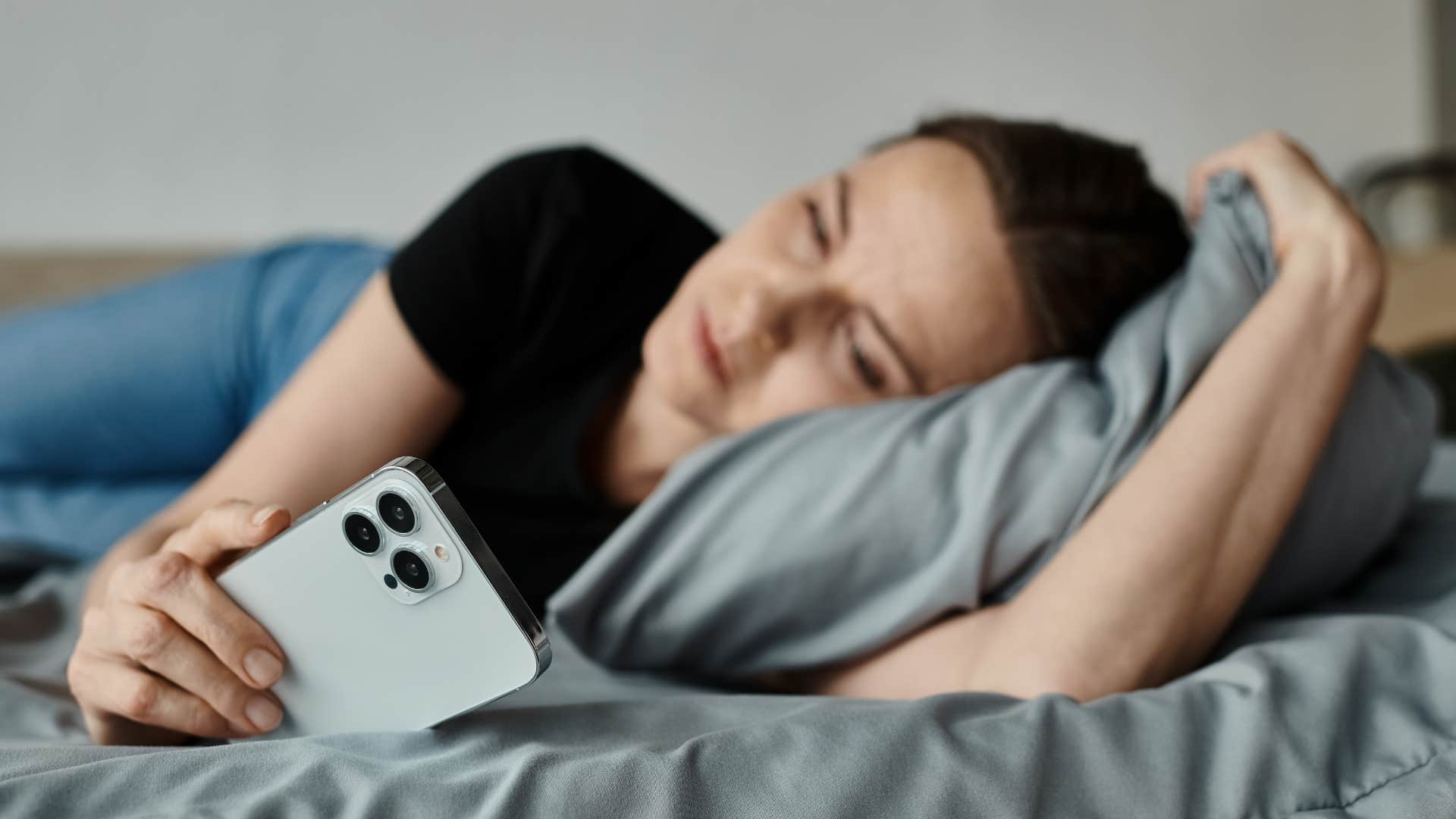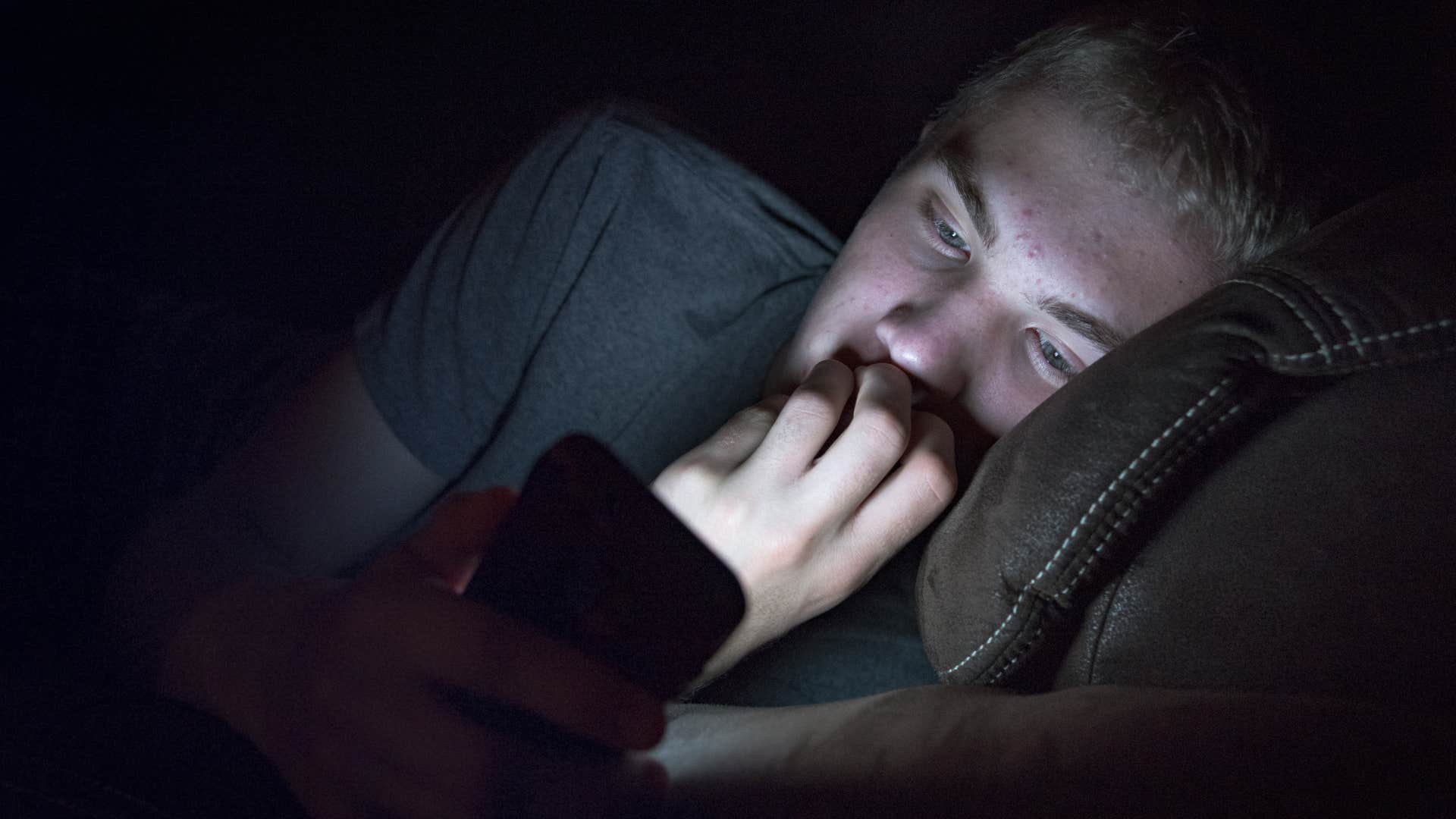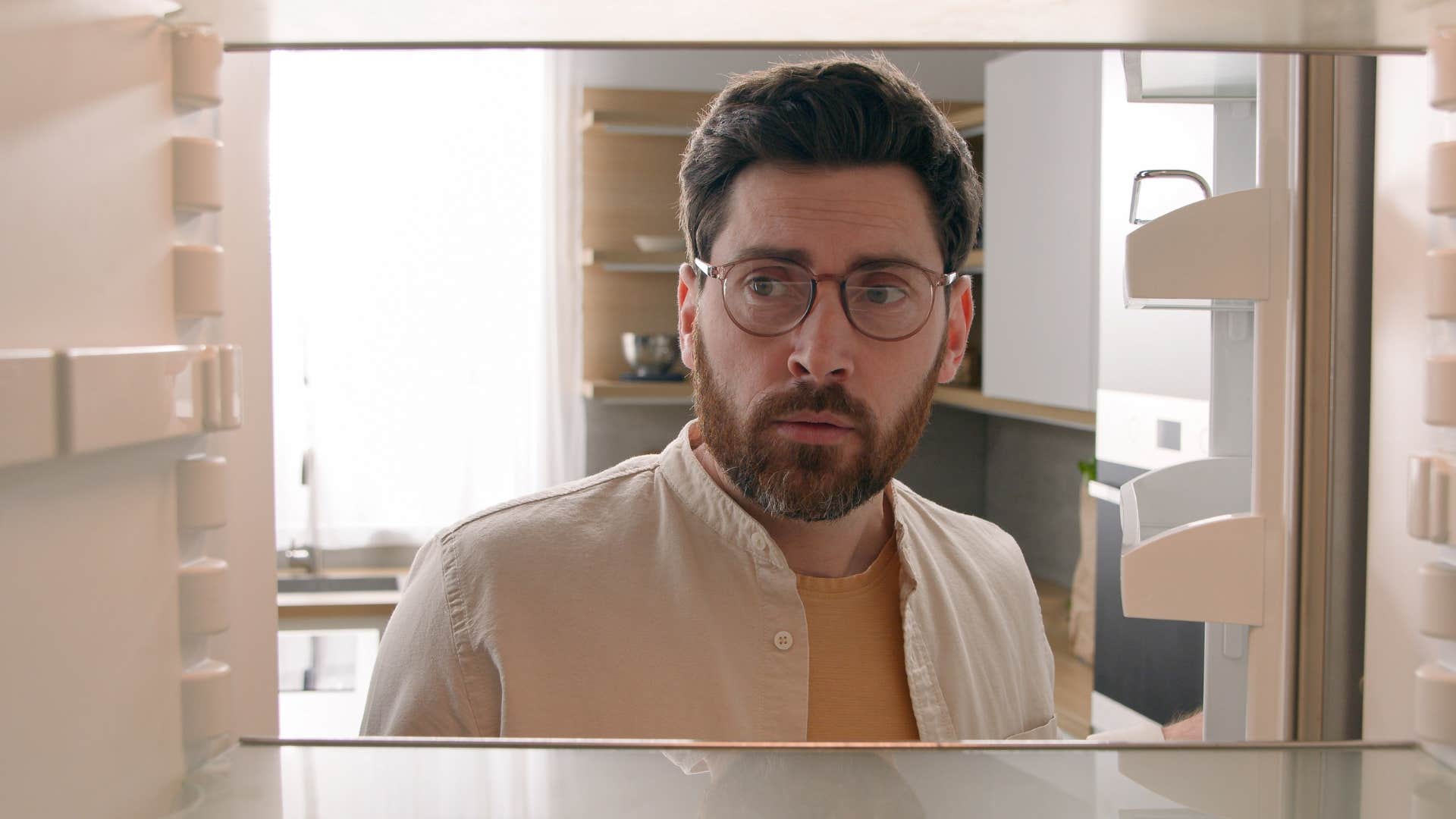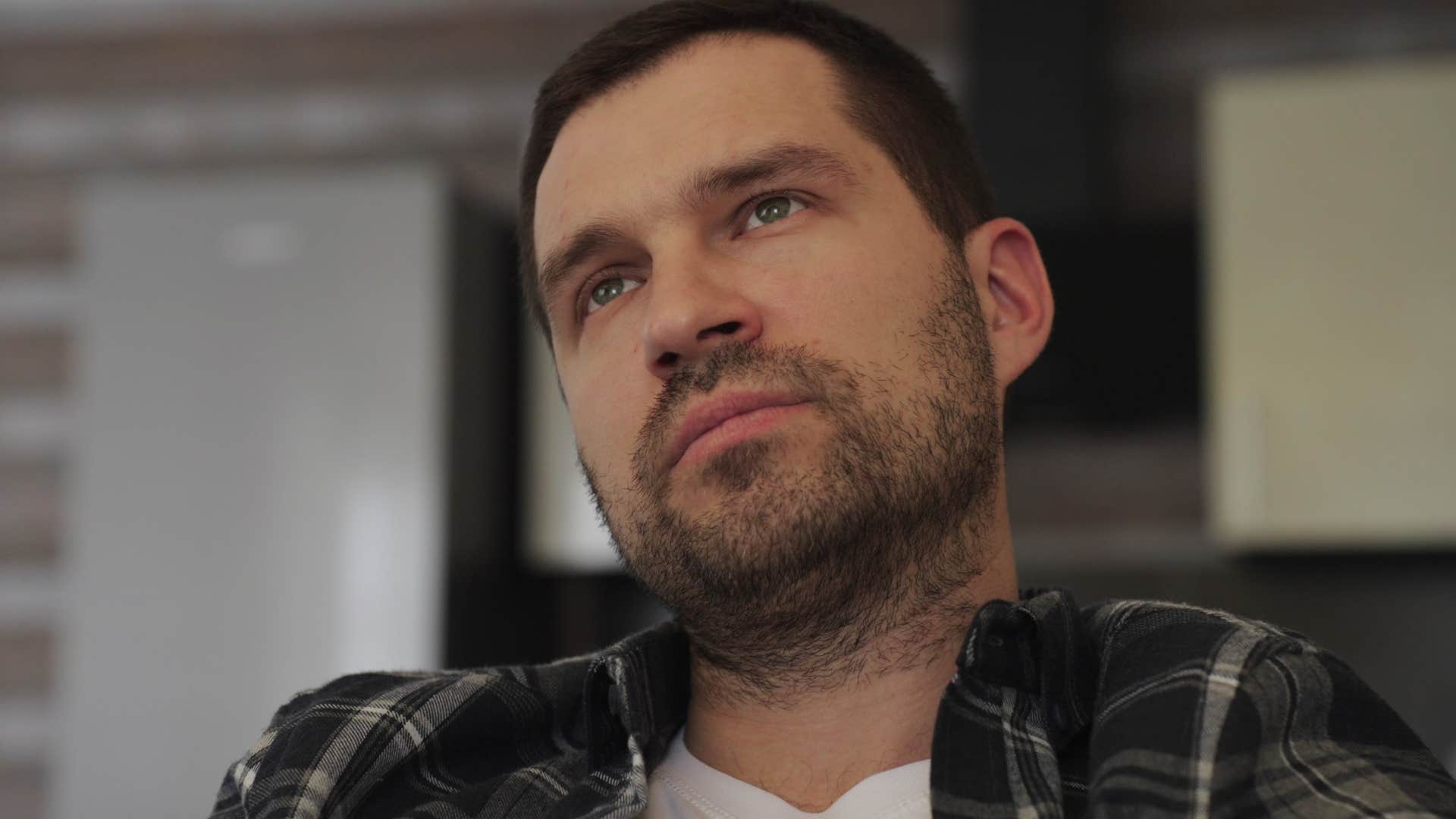People Can Tell Someone's Seriously Exhausted If These 11 Things Are In Their Home
Your environment is just as much of a sign of emotional drain as anything else.
 Josep Suria | Shutterstock
Josep Suria | Shutterstock Our homes are often a reflection of not just our personal identity and self-expression, but also our mental state. Cleanliness and mental health are linked, but there are also a number of other “red flags” that a person is feeling emotionally burnt out at home that have nothing to do with chores or household labor.
While intentional leisure time and healthy habits at home can help to ease emotional exhaustion, according to a Stress & Health study, if they’re being overlooked in favor of isolation and distraction, this can only exacerbate the stress a person feels. From dishes piled in the sink to weeks' worth of laundry lying around, people can tell someone’s seriously exhausted if these things are in their home, in place of clean spaces and clear hobbies filling their time.
People can tell someone's seriously exhausted if these 11 things are in their home
1. Dead and dying plants
 Okrasiuk | Shutterstock
Okrasiuk | Shutterstock
Being a “plant parent” at home is about much more than adding to the chore list — it’s about intentionality. Houseplants often need a level of care and attention that people who are seriously exhausted can’t offer, which is why dead plants in someone’s home are often a sign that someone’s coping with burnout.
Healthy routines and care for plants can boost people’s mood, creativity, and general mental health, but when they’re neglected, that’s the energy that floods into someone’s space. They take effort and work, just like any other relationship with a living being, but when you’re too caught up in emotional coping and distress internally, these things are silently overlooked.
2. Laundry piles everywhere
 PeopleImages | Shutterstock
PeopleImages | Shutterstock
It’s natural to have a chair for clean laundry in your room or to overlook certain chores on busy days, but people can tell someone’s seriously exhausted if piles of clean and dirty laundry are consistently scattered around their entire home.
According to a study from the Journal of Affective Disorders Report, stress can sometimes impair executive functioning in ways that make memory, decision-making, and even motivation to complete chores at home more difficult.
If someone’s brain is too busy mitigating chronic stress and dealing with the emotional overwhelm of exhaustion, completing chores can feel impossible at home.
3. A bed that’s always unmade
 StoryTime Studio | Shutterstock
StoryTime Studio | Shutterstock
Even if it seems simple, taking a few minutes and a bit of energy every morning to make your bed can have powerful effects on your mood and mental health for the day. At the very least, if you make your bed and everything else in your day goes wrong, you at least come back to a clean and comfortable space to rest.
However, people can tell someone’s seriously exhausted if they have a consistently unmade bed in their home. Of course, sometimes we’re in a rush and underestimate the power of a tidy bed, but for the most part, it’s an easy ritual that seriously adds value to our lives and shouldn’t be overlooked.
4. Multiple alarm clocks
 Lightfield Studios | Shutterstock
Lightfield Studios | Shutterstock
Whether it’s on their bedside table, next to their couch in the living room, or even consistently going off on their phone, people can tell someone’s emotionally exhausted if they have a million alarm clocks in their home.
They’re always tired and fending off sleep, so they often need alarm clocks to keep them on schedule and to interrupt their body’s natural desire to fall asleep to cope. Even if it seems like a short-term fix, the truth is: you can’t distract yourself or avoid the rest your body needs. Especially if you’re already emotionally exhausted or burnt out, there’s no other way to cope.
5. A sink full of dishes
 New Africa | Shutterstock
New Africa | Shutterstock
Similar to struggling with doing the laundry or cleaning up the clutter in their home, if someone has a sink full of dishes “soaking” for days on end, it could be a sign that they’re seriously exhausted.
While many experts argue that doing household labor and making time for chores can improve mental health and physical longevity, for people already struggling to get out of bed in the morning, it’s the last one of their priorities.
6. Dark curtains and rooms
 mooremedia | Shutterstock
mooremedia | Shutterstock
If someone is constantly using blackout curtains for a sense of isolation or security, disrupting their circadian rhythm and avoiding the benefits of natural light at home, chances are they’re emotionally exhausted or struggling mentally.
We can cling to sleep in times of distress as a distraction or avoidance, but it often only amplifies our struggles internally as a crutch. That’s why people can tell someone’s seriously exhausted if it’s always dark in their home.
They’re not getting the positive exposure to light they need, but also simultaneously disrupting the sleeping patterns that are required to manage their exhaustion.
7. An empty fridge
 MAYA LAB | Shutterstock
MAYA LAB | Shutterstock
If someone’s coping with emotional exhaustion or depression at home, they’re likely also struggling with doing the most basic chores. So, it’s not entirely surprising that leaving the house for groceries is the last thing on their mind. Either they’re overspending on the convenience of take-out or not eating enough to nourish their bodies and minds.
Even if they offer a fleeting sense of security and comfort, it’s these misguided coping mechanisms that actually end up exacerbating the problem. Their symptoms become harder to manage, they isolate themselves from support, and set themselves up for failure.
8. Tons of clutter
 PeopleImages | Shutterstock
PeopleImages | Shutterstock
Whether it’s takeout boxes scattered around from convenient meals, laundry piles everywhere, or a baseline level of clutter that never gets taken care of, people can tell someone’s seriously exhausted if these things are in their home.
Like psychology professor Dr. Joseph Ferrari explains, clutter only adds to the stress that these people are already experiencing in their routine. It becomes an element of visual clutter that adds strain to the brain, but it’s also a constant reminder of neglect that someone living in a messy home can’t ignore.
9. Lots of devices
 Nataliya Dmytrenko | Shutterstock
Nataliya Dmytrenko | Shutterstock
Whether it’s a TV always on in the background of their home, like a study from the Gerontologist suggests is often common for people coping with stress and mental health concerns, or a million other devices to distract them, people can tell someone’s seriously exhausted if these things are in their home.
Rather than address the internal strain or stress they’re dealing with, they lean on technology and devices to cope. It’s simply a distraction, one that offers a moment of fleeting comfort and ease, not a cure.
10. Half-completed projects
 Muse Studio | Shutterstock
Muse Studio | Shutterstock
Many people experiencing serious exhaustion may feel suddenly energized for a few hours during the day, only to fall back into their weak and distressed state by avoiding consistent rest. Burnout isn’t something that you can fix with a nap — it’s a process that requires consistent, deep rest.
That’s why people can tell someone’s seriously exhausted if they have a million half-completed projects around their home — whether it’s an unfinished book on their nightstand or a home repair that they haven’t worked up the energy to complete.
11. Overflowing trash bins
 Nicoleta Ionescu | Shutterstock
Nicoleta Ionescu | Shutterstock
De-cluttering and taking out the trash may be dreaded chores for anyone, exhausted or not, but there are many unsuspecting emotional and mental health benefits that people don’t realize. De-cluttering your space sparks positive emotions, ensuring that people have a safe place to rest and unwind without piles of clutter adding stress to their plates.
People can tell someone’s seriously exhausted if they notice overflowing trash or tons of clutter, not only because it sparks stress, but because the inability to complete these tasks is often rooted in a lack of energy and motivation by itself.
Zayda Slabbekoorn is a senior editorial strategist with a bachelor’s degree in social relations & policy and gender studies who focuses on psychology, relationships, self-help, and human interest stories.

